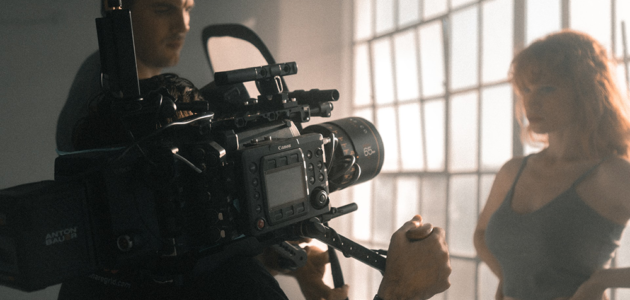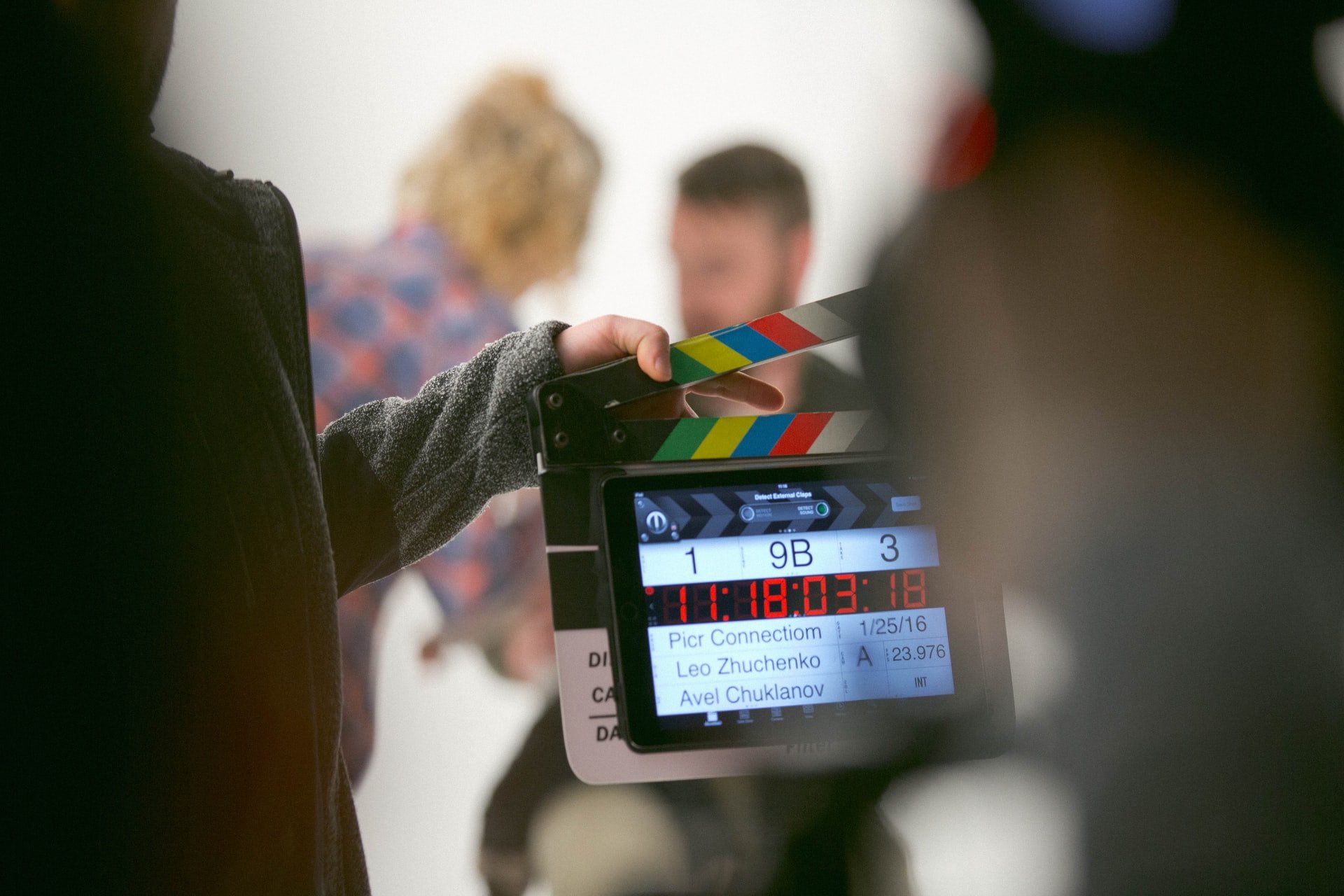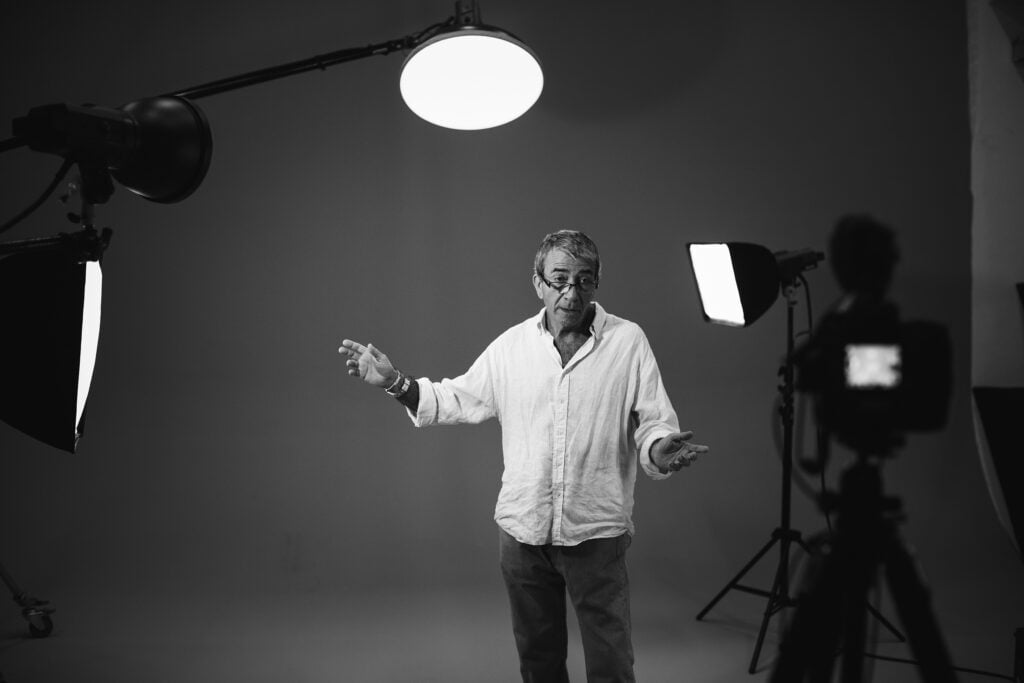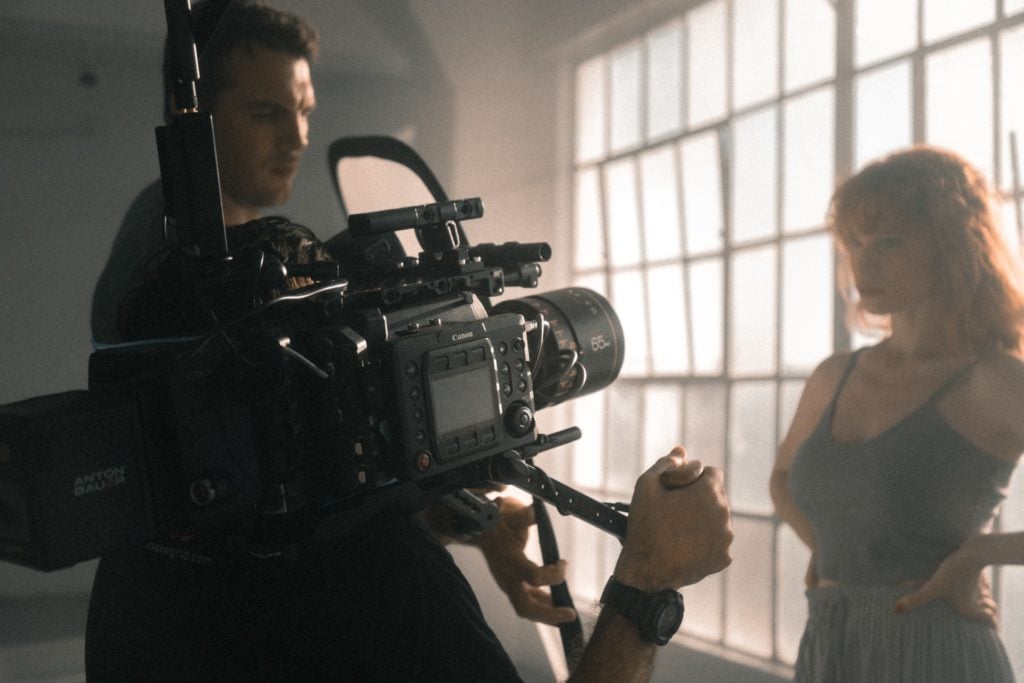
Acting for Film
Acting for film is the holy grail. Where theatre is the soul of acting and its origin story in so many senses, film – especially feature film – is where the gold standard of performance has been taking place for the best part of a century. This guide is a step-by-step process from how to get an audition through the preparation, performance and post production stages of working as an actor in a feature film. I will say that by and large the process described here can be applied to short films or TV/streaming productions as well. However for the ease of writing I am going to be specifically referring to feature films for the context of this piece. Without further ado, let’s get into it.
How to Get Feature Film Auditions
Before we get stuck in to acting for film, we need to start from the very beginning… Unless you are particularly fortunate, you are going to have to audition to land a role in a feature film. If you’re reading this article, it’s unlikely that anyone is simply going to offer you the role and hire you straight off the bat. Wouldn’t that be wonderful though? What a treat, what a dream!
Do you have an acting agent?
Okay so first things first, how to get a feature film audition. If you have an agent, they will be the one to secure auditions for you. You will receive an email with details of the production, material you need to prepare and instructions for the audition. Too easy, all you have to do is follow instructions, and start your audition prep.
That being said, not all agents are created equal. There is a definite, mysterious pecking order of agents in your town. With the most established, best known ones getting more casting opportunities than their counterparts. Long story short, you want to be with the best agent you possibly can in order to maximise your chances of getting great opportunities. We have a full article on how to go about getting an agent.
Please note (because we do get asked at least once a month) StageMilk is NOT an acting agency. We write articles and create content to help you get an agent, hell we even have an online scene club where you can work on some material to approach agents with. We cannot book you gigs though! PSA over!
Casting Billboards:
If you don’t have an agent there are a range of websites to check out that host auditions for freelance actors. Here’s a list of the most reputable casting billboards out there:
Note: these platforms are not all international, so you may need to do some research to find the reputable casting sites in your country/city.
Some of these casting billboard require you to pay a monthly fee, and other’s don’t. Do your research, and find out what the best platforms are in your region. It’s no use signing up to all of them, if they’re not posting relevant opportunities for you in YOUR city.
It’s important to note that NOT all the listings on these pages are legit. It’s very important that you trust your gut when dealing with the posters of these ads. Think of these pages like Craigslist or Gumtree for acting jobs. Some of the people there are legit creatives making passion projects with limited resources. Some of the people on there are bonafide creeps and charlatans being awful. The only person who is going to be able to separate the wheat from the chaff here is you. So interrogate each of these ads fully, check out peoples IMDB credits, see what they have done in the past. If they’re telling you they worked with Tarantino on his last movie but you can’t find them on the internet, I would be suspicious.

Detective Work:
Your other option is to do some solid detective work, and send out cold emails to casting directors to get feature film auditions. BUT make sure that you are acting in a professional manner at all times. The internet is a wonderful, scary place – you can find information on upcoming productions by being smart and with the help of some prior industry knowledge. Make sure you’re always up to date on what’s happening in your local industry. What’s shooting right now? What’s scheduled to shoot in your area coming up? Who are the major industry players? Who casts big budget Feature Films in your city, who casts small budget feature films in your city?
Hypothetical Scenario: Say for example, you live in Vancouver, and you know that the 7th season of The 100 is scheduled to shoot in Vancouver in a couple months because you’ve done your research on IMDB Pro (which we HIGHLY recommend getting) and The Hollywood Reporter etc. Now, it won’t do you any good to email the network (CW), or the production company (Alloy Entertainment) – neither of them are going to be able to help you get an audition, and they will likely just ignore your email. If you have an agent, email your agent, mention you’re interested in the show and the filmmakers, and that if any role comes up that’s appropriate, to let you know and you’ll be happy to tape. If you don’t have an agent, you can send an email to the casting director for The 100 in Vancouver – but, only if you’re absolutely confident you can nail the audition, should you get one. You need to back yourself 1000% before you start cold emailing casting directors, and know that your acting and your toolkit is the best it can possibly be at this point in time. If you’re new to acting, have done 1 or 2 classes, and that’s it – I would not recommend cold emailing anyone yet. You are not ready, and you risk making a poor first impression.
For all of the above options, you undoubtedly need your acting toolkit in order and up to date. You need an incredible headshot, a banging showreel and a CV. This industry rewards actors who behave as professionals, who are always training and working on their craft and who have a business mindset.
Read more: How to get auditions
Read more: How to get MORE auditions

How to Audition for a Feature Film
Okay so you’ve done it, you have booked yourself an audition now it’s time to do the work. There are a bunch of hacks to think about when it comes to auditioning for film. In fact I wrote another article on what to expect here.
Learn Your Lines
But let’s get down to brass tacks – you need to be prepared, as prepared as you possibly can be and the first step in that process is learning your lines. Folks, I can’t be specific enough about this, you have to know your lines, you have to know the hell out of them. Here is the thing, when you get into the audition room you are going to be stressed. In fact the stress activates the amygdala, the flight or fight part of your brain. This can cause you to forget your lines, go blank or just generally freak out. The only way to defeat this is to be so prepared you know your lines even when you are scared and overwhelmed.
Check out our video on how to learn your lines:
Now there are many other ways to do it, but hopefully that gets you off the ground. Learn the pants out of them.
Script Analysis
Once you have learnt your lines, do some in-depth script analysis. What is happening in this scene? What does your character want? What is the essential action? By that I mean, what is your character doing to get what they want? Keep this simple. A lot of actors get a script and try and go for some gigantic, esoteric, ethereal concept to make an impression – I would avoid that at all costs. Romeo, sitting outside Juliet’s balcony, wants her to come outside so he can see her again. Then he wants to kiss her again. Juliet wants to know if the experience she had that night was real and to figure out how she feels about this guy. Keep it real, keep it simple, keep it achievable.
We have in-depth articles on how to prepare for an audition and auditioning, so go and check those out. Yes we really do have articles on everything!!
Let it go
The final part of this is really allowing yourself to discover it all as brand new and exciting in the audition room. Allowing all of your preparation to live below the surface as you discover the life in the scene moment to moment. Anything that feels planned, or rehearsed, or generated shows up on camera. You have to learn it all, then let it all go and discover it as new when you hit the audition room. The only thing that can help you do this is practice. Check out classes in your area and if you can’t find any or prefer to work online, check out our online scene club.
Callbacks
It is highly unlikely that they will watch your audition and cast you in the film on the spot. It does happen occasionally but what is far more likely is that they will ask you to come back and do the scene again, sometimes with an actor they have already cast to see your chemistry together, sometimes with the casting director or director of the project and even sometimes for a completely different character to your original audition. Whatever it is, go with the flow, put your best foot forward and remember hard work trumps all. If you work your backside off and really prepare effectively, you will place yourself in a really good position. Additionally, be prepared to throw out all your ideas and respond to the notes and ideas of the casting team in the room. Sometimes they have access to the whole script, or the script has changed since you learnt it. Sometimes they just want to see that you can take direction regardless of circumstances.

How to Prepare for a Feature Film Role
You did it! You did the callbacks and you smashed them out the park! Congratulations! You now have a role in a feature film! So now what? How do you act for film, specifically?
Preparation my friend. Preparation. You should get to chat to the director, if you have a major or supporting role, sitting down and grabbing a coffee with them either in person or over Zoom could be a great idea. Talk through expectations, ideas and ask them for any thoughts or advice they might have. Once you are on the same page, get down to work!
You need to prepare as hard if not harder for your shoot day as you did for the audition. It is vital again that you know your lines, you know the heck out of them. And that you know your cues! I have a friend working on a major US show at the moment who has complained of shooting being held up by hours because an actor didn’t know their lines! Do not be that guy! Know ‘em into the turf, then make sure you have life inside that. Give yourself every opportunity to find discoveries in the text and be prepared to find that in every take!
Prepare well, and also be prepared for changes. Script changes can happen right up to the moment you shoot, so be flexible, be calm, be early and stay late. Be the kind of actor that makes production say ‘Oh them? Yeah they’re great! They know their stuff and they do great work!’
On Set Etiquette
Okay so being on set is weird. Sets are wild places. Let’s start with basics – Call Sheets – these can be difficult to interpret at first.
There is always a lot of information listed on a call sheet. Firstly in the top left you will normally see the director, producers and writers. Often there is also a weather report. Please learn these peoples names and faces. They are the key to you working again. Then there is a list of shots the production will be getting that day. The scene number, set description how much of a page that shot is and which cast is required. The numbers next to the cast are in order of importance. Some sets and actors value this number significantly. You can see how important hierarchy is on a film set. Know where you fit in and try and bring professionalism to your role. Most importantly you can see your call time next to your cast number in the lower half of the page.
Always. Be. Early.
Always. Turn up early, prepared and ready to work! Film sets will usually be running late, crew work really, really hard to set up a world for you to do your work in. The best way you can value what they do is by doing your job and doing it to the best of your ability. Additionally, be prepared to wait around. A lot! Always bring a book and snacks to set. It is more than likely you will be sitting in a trailer for hours while the crew works their backsides off. Try and stay warmed up and ready to work, you could be called any minute. Additionally, if you arrive before a meal break and you haven’t worked today, please let the crew grab food before you in the cue. Again they may have been up since the crack of dawn and really need a bite to eat to keep going. Politeness, humility and gratitude will get you a long way on a set like this!
Shooting your scene
It’s your time to shine! Lights, camera and action! Okay great, so the first thing to know is that this could be very overwhelming, especially your first time. There are up to 80 odd people, running around and doing stuff. The director is under the pump. Everyone is trying to make sure you are comfortable but simultaneously really needs you to do your thing and do it well and do it fast! Introduce yourself to the DOP (Director of Photography), the camera team and the sound guy(s). Once the director has talked you through the moment they are trying to capture, ask any questions you may have. A great thing to know is your frame size.
Generally they will start with a wide shot, move to a mid shot and a close up. Then turn around and do the same thing for the other actor. A wide shot is just what it sounds like, you and the environment you’re in. A mid-shot will be focused from your mid bicep to top of head and a close up is usually just your face or more zoomed in than that! It is important to know this to know where the edge of frame, and therefore the size of performance they are looking for is. Wide shots offer you freedom to move around and do a lot more stuff. Close ups require extreme subtlety.
Also, engage and chat with the other actor(s) if they are open to that! Working and learning from other actors is one of the best ways to improve! Most importantly, nail your scene just like you practiced and take that direction on board!

What now? (Once your film is released)
Promoting the Film
Depending on your role, you might be on set for an hour, a day, a month or even a year! Every scene is going to follow that process and as time goes on and you get more confident in what you’re doing and supported by the cast and crew around you, you’ll get more confident in what you do! Eventually it will be a wrap on you and the crew will give you a clap after your last shot! Thank everyone for their work and get outta there! Now your life is going to be about promotion! Stay in touch with the production team and once they have given you the all clear to start promoting it, make sure you do everything you can to share it around!
Follow the film on all your social media, retweet and share their posts. Check for permission and if given the all clear post some behind the scenes photos or videos if you have them! Please make sure it’s okay with production before you do this or else you could find yourself in hot water legally! Keep an eye out for the premiere date and make sure you send any footage you get a hold of to your agent!
Premieres: a How to Guide
Ahh premieres, you gotta love them! The glitz, the glamour, the terrible audience Q and A sessions. What a treat, what a dream. See if you can meet up with the cast and crew before you head in, otherwise heading in solo can be a little weird. Suit up! If you have connections in the fashion industry, quite often they will lend you a suit or a dress for the night if you promote them at the event. This can be a fun way to get some radical threads. If the film is big enough or at a significant film festival, you may have to do some media. Try and do this part of the night relatively sober and keep to any talking points production has offered. It is also important to show the media who you are and why you are passionate about the story of the film!
Keep your chin down and your eyes open on the red carpet and enjoy yourself! Try and network as best you can and hit the after party! Premieres are a really fun night, just make sure you look after yourself and the people around you!

Conclusion
Well there you have it ladies and gentlemen the entire process from audition to premiere! This is acting for film in the modern world with a whole heap of links to get you started! If you need anything else or would like to get some practice in before you go auditioning for Scorsese’s next project, join our scene club!

Leave a Reply